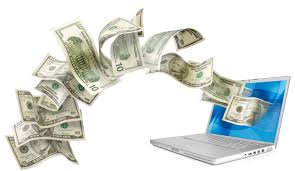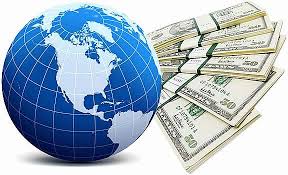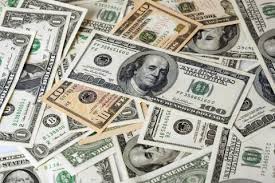Microsoft - Private Equity's Biggest Whale
Private equity firms have no problems gobbling huge companies nowadays. One company which is very ripe for a 100% private equity buyout is none other then Microsoft. The crux is whether Gates wants to sell, or better still gates should just sell down till he holds just 5% of the company, because the way the stock is trading, it will just be eroding in value as investors are unconvinced of Microsoft's future. The value is Microsoft is based on its past and legacy, which is reaping beautiful cash flow, cash flows, the most important accounting terminology to private equity people - the next probably be discount to break up value. Microsoft is sitting on US$34 billion cash. The only problem is its current market cap is US$250 billion. To be successful, private equity firms will have to raise around US$300 billion. Assuming Gates would still want to hold onto 5% and you can have a share scheme allowing another 5% to be sold to employees via discounted shares tied to employment contracts. Say, they can gear up 10x, private equity firms would still have to pony up US$30 billion - which is still doable with an aggregation of 3 or 4 really big private equity buyout firms.
The opportunity cost of US$30 billion is say at 5% = US$1.5 billion a year. Microsoft should make around US$20 billion a year before tax, still lots of meat to go around. After taking it 100% private, there is no need to satisfy the investors' expectations that Microsoft needs to reinvent or spend heavily on R&D anymore in order to come up with new and brilliant ideas. The fact is Microsoft has grown way too big, and for any new ideas to make a decent impact on the company would have to be as big and revolutionising as "the Excel spreadsheet" or at least "YouTube" level. Hence fergetaboutddit already. Microsft spend US$6 billion a year on R&D, save that amount immediately, and cut at least 40% of staff off its roster immediately with that move.
At the end of its all, investors will be holding onto the stock for dividends, which will be in the region of 20% at least per year.
skip to main |
skip to sidebar















tips, tricks, business, news, information, services, business, SEO, internet, websites, blogs, business, news, health, facebook, twitter, automotive, online marketing, unique, funny, zodiac, sport
Blog Archive
-
▼
2006
(308)
-
▼
August
(27)
- Economy & Equity Market - USEconomy - The underlyi...
- Economy & Equity Market - Malaysiasopskysalat: won...
- Pantai, Khazanah, Bailouts?What's Wrong With The P...
- US Stocks' Dividend Yield & The Hidden DevilRecent...
- Zentrader's Question On AnalystsZentrader asked:De...
- Desperately Seeking TalamMaking Sense & Assessing ...
- Oil & Gasoline Back To RealityOil prices fell over...
- WHY ... Scomi ... WHY???Silence From Bursa, SC, EP...
- Stock-Take Of Malaysian CountersWeathered the May/...
- Important QuotationsIn India, corruption is under ...
- A Rebalance Soon Btw US Stocks vs International & ...
- Microsoft - Private Equity's Biggest WhalePrivate ...
- Things Are-A-Changing At Bursa/SCFinally, A Query ...
- Even The Best Fund Managers Get ClobberedFidelity ...
- Bypassing The London Stock ExchangeIBs Ganging Up ...
- Snippets, Snipes & Snides11-15 August 2006Energy E...
- Jesus Is A DemocratDisillusionment With Christiani...
- UBS Study On Price & Earnings Of CitiesShould I Be...
- No title
- CCB Wants To Buy Bank of America (Asia)Bank of Ame...
- Conversations About LandmarksBetween Myself & Dora...
- Chinese Yuan To Rise Faster SoonMalaysian Ringgit ...
- Landmarks Special PlacementOn Aug 4, the company p...
- "Oil" Is The Matter With You?Oil touched US$76 a b...
- Enough Already, Stop Bilking The People, Liberalis...
- Corporate / Government Bonds Yield Spread As An As...
- KLSE Trading Notes Palm Oil & Market ThemesFollowi...
-
▼
August
(27)
No comments:
Post a Comment